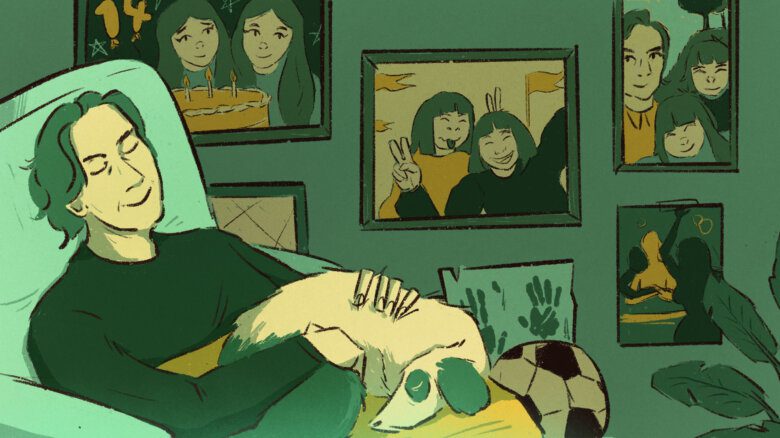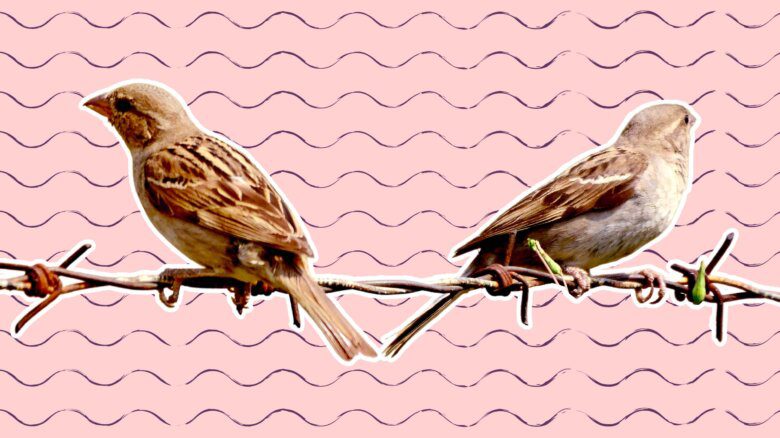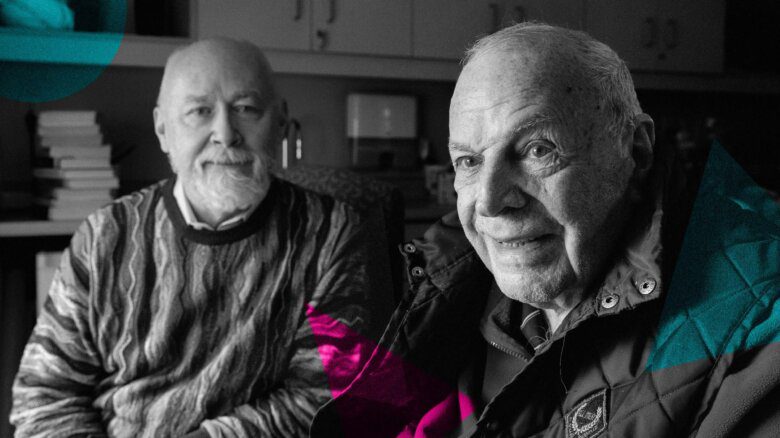“Ask Kai: Advice for the Apocalypse” is a column by Kai Cheng Thom to help you survive and thrive in a challenging world. Have a question? Email askkai@xtramagazine.com.
Dear Kai,
What do you do when you suspect that someone in your life is misusing the language of “accountability” and “harm”? Basically, the situation is that I’m Asian, a lesbian and friends with this person who is also Asian and trans. I’ll call them “B.” So B and I became friends a year or so ago when we were doing some community arts work together, and they seemed incredibly charismatic and intelligent. To be honest, I didn’t know all that much about social justice and racial justice, and they opened up doors for me when it came to understanding systemic racism and building a more politically aware community.
B and I got really close really fast, and by that I mean really close and really fast! We spent time together almost every week. B was often struggling financially and dealing with stress and trauma that they’d experienced, so I spent a lot of time and even money supporting them. I was honestly happy to do so because I felt like they brought so much into my life. I’m not exactly sure when our dynamic became one of me primarily supporting them. But I started to notice that B could act in ways that felt manipulative and mean. They would frequently “call out” other organizers and activists for using the wrong language or not considering every angle of oppression, and they talked badly about people behind their backs—there’s almost always some kind of conflict or drama going on in B’s life. Sometimes, B can even say things to me that feel pretty manipulative, too. They tell me I have to be on their side because they’re the most oppressed person, and if I argue, I’m not being “supportive” or “affirming” enough. I feel like I’m never a good enough ally to B, and it’s so confusing.
A little while ago, B started a cancellation campaign against this other friend of ours (I’ll call her “C”) who also organizes in a queer film-screening collective we’re a part of. C is a white lesbian in her 70s. B says that C has acted in “racist and transphobic ways” to them, and that C should be kicked out of the group for not being “accountable for the harm she’s caused.” But honestly, it doesn’t feel to me like C did much that was wrong. B and C had some different ideas about how we should organize some events, and essentially, it boiled down to the fact that C wanted to show a movie that B thought was problematic because it didn’t have any QTBIPOC representation. I agreed that we should show films with racially diverse characters (and I agree that C didn’t seem to get it when we explained), but B took things really far. They have been sending really intense, long, angry emails to everyone in the collective, and to all our mutual friends, and did a call-out on social media, saying we all should cut ties with C. But C is also a marginalized person, who lives alone, and I just don’t want to cut her off from all her social supports. Still, I’m scared of B saying that I’m being a bad friend and turning against me if I don’t do what they want … any advice is much appreciated.
Anxious Asian
Dear Anxious,
I often like to say that the queer social world is not for the faint of heart. As dazzlingly creative, beautiful and resilient as we can be, we can also be mean, petty and overly focused on our own trauma—which is to say that we are only human. To make things even more complicated, all of the best parts of human beings can also get wrapped with some of our worst impulses. Revolutionary ideas can become an excuse for bullying; deep connections can give way to codependence and messy boundaries and relationships that once brought us joy and affirmation can also bring us pain and disappointment. How are we to navigate such a labyrinth while remaining open-hearted and compassionate? I think it begins with getting clear about our own values and boundaries. What kind of person do you want to be, and what values do you want to uphold—even (or perhaps especially) when other people in your life disagree?
In your letter, Anxious, some values that I can perceive are:
1) The value of social justice and honouring relationships. You want to acknowledge that B has played an important role in your life, and helped you to become a better person.
2) You also value being kind and honest—it bothers you when B does things that feel mean and when they talk about people behind their backs.
3) You value being fair and compassionate. You don’t feel that C deserves to be punished (or at least not to this degree), and you don’t want her to be cut off from relationships that she might need.
Perhaps I’m not getting the values perfectly right, or perhaps there are some that you would like to add to the list. The important thing here is to get a strong sense of what is important to you, independent of what is important to B, or even the broader community that you share. Getting clear about our values doesn’t mean that we disregard the values of our loved ones, or of the collective. Rather, it’s about building a sense of internal integrity—knowing which ideas and actions we support and why, and being able to set limits on how much we allow others to influence us.
In this vein, the concept of boundaries is one that has become increasingly popularized in self-help and popular psychology in recent years. “Boundaries” are often conceptualized as certain rules about how we can engage with one another, e.g., “My boundary is that I don’t like to be touched without permission, my boundary is that I won’t eat green eggs and ham, etc.” However, I prefer consent educator Betty Martin’s definition of boundaries, which is “everything that I have a right to and am responsible for.” In this perspective, the idea of boundaries becomes a way of separating our sense of self from the selfhood of others.
Our desires and values are a part of the self that we have a right to and a responsibility for. So are our actions. We have the right to desire what we want, to value what’s important to us and to act in a way that’s in alignment with those desires and values. We also have the responsibility for the impact of our actions on others. With this in mind, we can come back to your friendship with B: It seems to me that the boundaries of this relationship have become somewhat blurred—for some reason (or reasons), and you don’t feel that you have the right to your own values, or to choose your own actions.
When the boundaries in relationships get blurry, this is where a relationship can start to feel “codependent” or “toxic”—words that I don’t always love because of how stigmatized they are, but that can sometimes be useful for understanding our feelings in a relationship. I like to encourage folks to think of relationships as potentially codependent and toxic, rather than thinking of people in those ways. Relationships with blurred boundaries can be painful and confusing—within them it often feels wrong or dangerous to have independent values and desires. It can feel like acting in accordance with our values and desires will always be hurtful to the other person, and/or that the other person will punish us somehow.
When we’re caught in a relationship with blurred boundaries, we often find ourselves operating out of fear and confusion. In order to shift from confusion to clarity, I find it helpful to map out (literally, on a sheet of paper) first, your own values and desires, and then your sense of the other person’s. Once that’s done, I invite you to affirm to yourself that you have a right to each of your values and desires—even when social justice language enters the picture.
“Healthy relationships do not demand that we cut other people out of our lives when that’s not what we really want to do.”
The political language of social justice can be powerful and valuable. However, like any other language, it can be misused and misunderstood. Concepts such as allyship and solidarity should not be used to make you feel like you have to act out of alignment with your personal values in order to avoid punishment. And healthy relationships do not demand that we cut other people out of our lives or engage in social shunning when that’s not what we really want to do.
If you feel that B is misusing the concepts of accountability and harm, A, you have the right—and perhaps even the responsibility—to refuse to get involved with this “cancellation” campaign. If it feels right, you might even declare this explicitly to B. Often, people who are trying to push past our boundaries are doing so in order to try and get their emotional needs met. Firm, clear and compassionate boundary-setting can sometimes be helpful in getting such people to recognize that what they are doing is not okay, and that it is not your responsibility to meet their emotional needs.
Setting boundaries in a clear and compassionate way looks like naming that we don’t want to do what someone else is asking or pressuring us to do, while acknowledging that they are allowed to have feelings about it. It does not look like taking responsibility for managing their feelings or “fixing” things for them. In doing so, you break the cycle of “giving in to get along,” and you send the message that you are no longer available to continue in this dynamic of blurred boundaries.
Clarifying boundaries can be pretty scary when we are doing it for the first time with someone—particularly if you fear retaliation. It’s often helpful to talk things through beforehand with someone you trust, particularly if you have other friends whom you think will understand what you are going through. In my experience as a mediator and long-time participant in social justice-centric communities, the misuse, or overuse, of accountability language is pretty common, and a lot of folks feel uncomfortable when they see it happening. However, most people feel too anxious or overwhelmed to name what is going on. Talking things through and setting up supports for yourself could be an important tool for changing or addressing your relationship with B. Most difficult conversations are easier when you have some help going in!
Unfortunately, there isn’t a graceful and seamless way that’s guaranteed to get you out of this situation without confrontation or conflict, A. It’s possible that you will have to have some really uncomfortable conversations in order to stand up for what you believe is right. To me, this is the bravest and also the most loving thing: to be willing to fight (non-violently) with our friends on the issues that matter. Yes, it’s scary. Absolutely, it’s hard. Yet I believe that the freedom and growth that come with taking a gentle yet firm stance against the misuse of call-outs and accountability language are transformative not only for ourselves, but for our whole communities. I encourage you to be brave and loving, A. Some things are worth fighting for.
Kai Cheng Thom is no longer a registered or practicing mental health professional. The opinions expressed in this column are not intended or implied to be a substitute for professional medical advice, diagnosis or treatment. All content in this column, including, but not limited to, all text, graphics, videos and images, is for general information purposes only. This column, its author, Xtra (including its parent and affiliated companies, as well as their directors, officers, employees, successors and assigns) and any guest authors are not responsible for the accuracy of the information contained in this column or the outcome of following any information provided directly or indirectly from it.


 Why you can trust Xtra
Why you can trust Xtra


